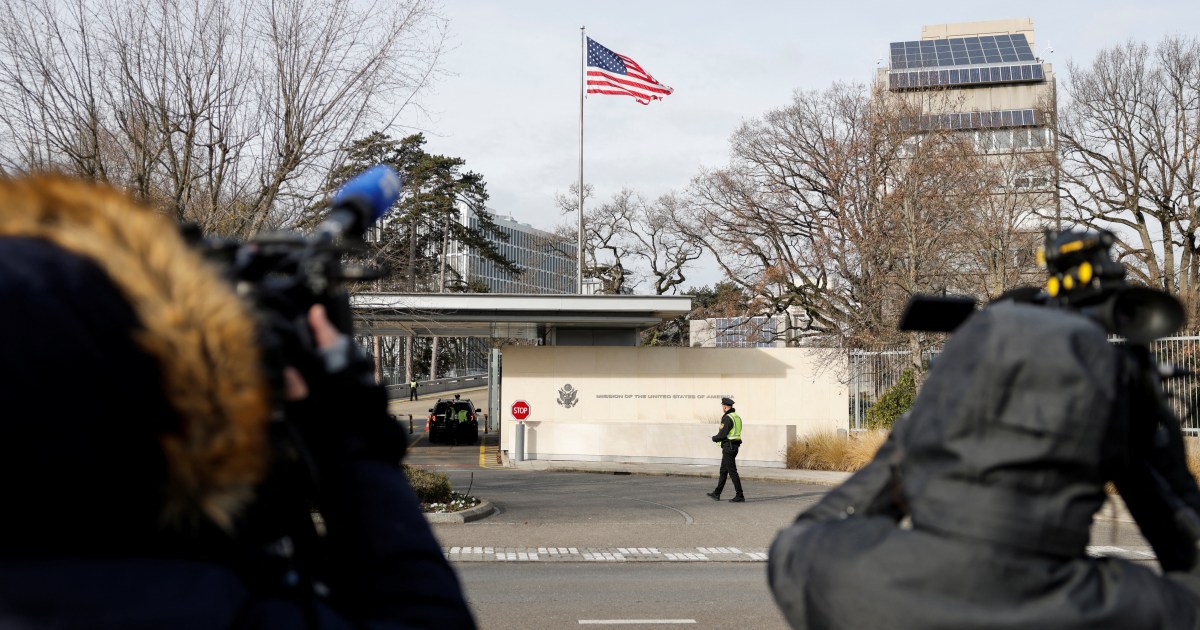Secretary of State Marco Rubio has landed in Switzerland for meetings with Ukrainian and European officials on Sunday as U.S. efforts to coordinate a Ukraine peace push were clouded by concerns over the origins of the proposal.
The 28-point plan suggests that Russia could be granted more territory than it holds, stipulates limits on Ukraine’s army, and prevents Kyiv from ever joining NATO — concessions that amount to a near-mirror of Moscow’s long-standing demands.
Polish Prime Minister Donald Tusk said in an X post Sunday that European leaders were ready to work on the plan “despite some reservations,” but added: “Before we start our work, it would be good to know for sure who is the author of the plan and where was it created.”
In a press conference Saturday, a bipartisan group of U.S. Senators said Rubio had told them that the existing text being discussed was not in fact a U.S. initiative, nor the administration’s position, but rather a Russian proposal given to special envoy Steve Witkoff.
The plan “was not the administration’s plan” but a “wish list of the Russians,” Sen. Angus King, I-Maine, said Rubio told them.
Sen. Mike Rounds, R-S.D., asserted that “none of the information that was released on this particular proposal came back from the administration,” following his call with Rubio Saturday afternoon.
A State Department spokesperson later denied the senators’ account, calling it “blatantly false,” while Rubio has asserted that the U.S. did produce the proposal.
“The peace proposal was authored by the U.S. It is offered as a strong framework for ongoing negotiations,” Rubio wrote on X late Saturday night. “It is based on input from the Russian side. But it is also based on previous and ongoing input from Ukraine.”
A senior Trump administration official told NBC News previously that the plan was developed in consultation with Russian envoy Kirill Dmitriev and Ukrainian officials.
There’s “so much confusion who actually authored this and who’s actually agreed to it, that we’re already seeing people starting to try to walk away from it,” retired Lt. Gen. Ben Hodges told NBC News on Sunday.
This confusion is “either by design for the Russian side, or it’s a reflection of incoherence inside the administration,” he added.
The White House previously described the plan as “the best win-win scenario, where both parties gain more than they must give,” but the mixed messages from Washington — combined with nervous allies demanding clarity — have deepened doubts about what the U.S. is actually trying to achieve.
President Donald Trump has set Thanksgiving as the deadline for Ukraine to agree to the plan, but later said the plan was not his “final offer.”
A U.S. official said Rubio, Witkoff and Army Secretary Dan Driscoll held “positive and constructive” coordination meetings Sunday morning in Geneva, followed by more detailed afternoon talks aimed at ironing out the terms of a potential peace agreement.
Ukraine’s President Volodymyr Zelenskyy, said in a post on Telegram Sunday: “There is currently an understanding that the American proposals may take into account a number of elements that are based on the Ukrainian vision and are critical to Ukraine’s national interests.
“Further work is ongoing to ensure that all elements are truly effective in achieving the main goal that our people are counting on – to finally put an end to the bloodshed and war.”
Rustem Umerov, the secretary of Ukraine’s National Security and Defense Council, said on Telegram that talks were progressing, adding: “We appreciate our American partners working closely with us to understand our concerns to reach this critical point and we expect to make more progress today.”
In a Truth Social post, President Donald Trump called for an end to the war and said: “UKRAINE “LEADERSHIP” HAS EXPRESSED ZERO GRATITUDE FOR OUR EFFORTS, AND EUROPE CONTINUES TO BUY OIL FROM RUSSIA.”
European leaders met on the sidelines of the G20 summit in South Africa on Saturday and said in a joint statement that the plan requires additional work, adding that they are “concerned by the proposed limitations on Ukraine’s armed forces, which would leave Ukraine vulnerable to future attack.”
Speaking on the sidelines of the G20 summit Sunday, German Chancellor Friedrich Merz said that crafting a plan acceptable to Ukraine would likely take time. “Right now, I’m not yet convinced we’re going to get the solution President Trump wants in the next few days,” Merz said.
The comments captured a broader European unease, and it remains unclear whether the Geneva talks will resolve the confusion or deepen the divisions.
European leaders have “once again, been confronted with the consequences of their own passivity,” said Keir Giles, a senior consulting fellow at Chatham House, a London-based think tank.
“Europe has not been willing or able to insert itself into the conversation on the future security of the continent in any meaningful manner,” he told NBC News. “They continue to be blindsided by diplomatic initiatives that happen without their involvement.”
